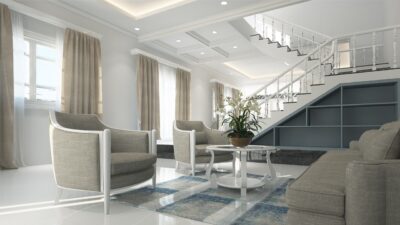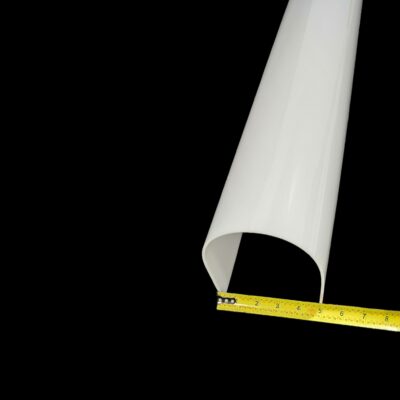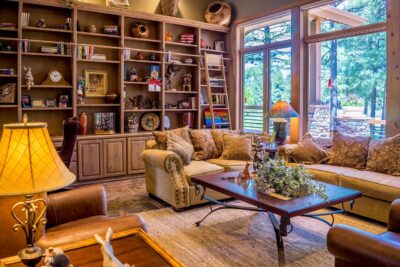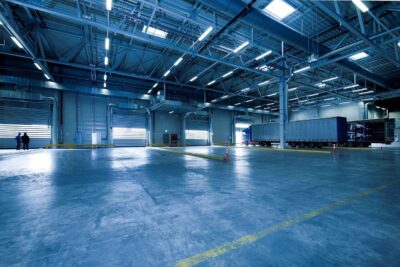
How to Retrofit Old LED Fixtures with Modern Covers
How to Retrofit Old LED Fixtures with Modern Covers By Aman | Updated on April 15th 2025 LED lighting has pretty much taken over the
Home » How to Measure an LED Fixture the Right Way
Let’s be honest, trying to measure an LED fixture can feel like a chore that somehow combines DIY frustration with a puzzle game nobody signed up for. But here’s the thing: getting that measurement wrong? Yeah, it can totally throw off your lighting vibe. So, this isn’t just about numbers on a tape measure—it’s about making sure your space looks and functions just right, whether it’s a sleek office nook or an expansive commercial floor.
Accurate LED fixture measurement is the first step to ensuring replacement lenses or diffusers fit snugly, perform efficiently, and avoid annoying flickering, gaps, or imbalance. When the fit is off, it’s more than just an eyesore—it can reduce lighting performance, increase energy waste, and even pose safety issues. So, let’s break down how to do this the right way.
Here’s the deal—measure wrong, and you might end up with a diffuser that doesn’t fit, is too tight, or looks awkward. Proper measurements ensure that the lens or cover sits correctly, distributes light evenly, and helps keep out dust, bugs, and moisture. Plus, it saves you the pain of returns, reorders, and unexpected costs.

Picture this: you try installing a new LED lens cover and suddenly you’ve got gaps, poor alignment, or even a cover that refuses to stay on. Poor measurements = poor performance. Light may spill unevenly, glare may increase, and you might lose the benefits of energy-efficient LED lighting altogether.
Measuring Tape (flexible, firm, inches & centimeters)
Step Ladder (you really don’t want to eyeball anything from ground level)
Notepad or your phone (to jot down exact numbers)
Calipers (great for precise internal/external dimensions)
Laser Measure (perfect for high or awkward placements)
Level (for symmetry)
Masking Tape (to mark edges or reference points)
Surface-Mount LED Panels – Slim, modern, sit flush against ceiling or wall.
Suspended LED Fixtures – Hang from ceilings, often used in offices or retail.
Recessed LED Troffers – Built into drop ceilings, common in commercial spaces.
Wraparound LED Fixtures – Encased fixtures for wide light spread in schools, garages, etc.
Linear LED Strips – Long, narrow lighting often used in under-cabinet or industrial use.
Vapor Tight or Weatherproof LEDs – Sealed units for damp or dusty areas.
Surface-Mount / Panels: Measure length, width, and depth.
Suspended: Measure canopy diameter, cord or chain length, and the fixture’s body dimensions.
Recessed / Troffers: Measure the housing opening, fixture depth, and exact lens size.
Wraparounds: Measure lens length, width, depth, and check how it clips or slides into place.
Vapor Tight: Measure full body length, width, and cover type (snap-in, gasketed, etc.)
Clear the area, grab your ladder, and make sure there’s enough light. Turn off power if you’re removing parts or covers.
Length & Width: Measure the outermost points of the fixture or lens.
Depth/Height: Measure from the base or mounting surface to the furthest point down.
Suspension: Measure from ceiling to fixture base if applicable.
Lens Fit: Note the fitting mechanism—snap-in, slide-in, gasketed, etc.
If you’re solo or working in high places, a laser measure or telescoping pole can help. Use masking tape to mark reference edges before you take your final measurements.
Match your numbers to product specs online, allowing for minor tolerance (~1/8″). Always confirm the fitting style—wraparound, gasketed, flat panel, etc.
Some LED lenses overlap the fixture; others sit flush. Measure internal and external edges where possible for best results.
Only measuring exterior dimensions (interior might matter more)
Skipping the fit mechanism details
Rounding measurements (don’t do it!)
Forgetting depth or cover thickness
Double-check everything. Take photos. Measure twice—or three times. It’s worth it.
Apps like Google Measure or Apple’s AR Measure can help in a pinch. Some LED fixture manufacturers even offer online fit calculators.
Got an old, custom, or commercial fixture? Some companies (like Fluorolite Plastics) offer pro support and custom-made LED lens covers tailored to exact specs.
Measuring your LED fixture might not be thrilling, but it’s essential for getting that clean, bright, professional finish. With the right tools and a little patience, it’s totally manageable—and saves you from bad lighting and worse headaches.
Looking for a solid replacement lens or cover for your LED fixture? Fluorolite Plastics offers durable, precisely cut options for commercial, industrial, and healthcare spaces. Custom solutions available, so you get the right fit the first time.
Q: How do I measure an oddly shaped LED fixture?
Trace it on paper or cardboard, then measure the widest points. Use calipers for internal parts or send the tracing to your supplier.
Q: What if my measurements fall between sizes?
Go custom. Standard lenses have limits, and a bad fit can compromise everything.
Q: Do I need to re-measure after renovations or ceiling changes?
Yep. Fixtures shift, and ceiling modifications can change alignment or fitting.
Q: Can LED fixture covers be custom-made?
Absolutely. Especially for integrated LED fixtures, custom is often the safest route.
Q: Tips for online ordering?
Compare your numbers to the product’s listed specs. Ask for diagrams, confirm fit style, and go custom if unsure.
Q: What if I already ordered the wrong size?
Contact the supplier. Many (like Fluorolite) offer exchanges or adjustments—just have your measurements ready.

How to Retrofit Old LED Fixtures with Modern Covers By Aman | Updated on April 15th 2025 LED lighting has pretty much taken over the

How to Prevent Yellowing and Cracks in LED Fixture Lenses By Aman | Updated on April 15th 2025 You’ve probably seen it before—those once-clear LED

How to Choose LED Fixture Lenses for Harsh Industrial Environments By Aman | Updated on April 8th 2025 Ever stepped into a factory or a
"We've Got You Covered" and Trace n'Fax are Registered Trademarks of Fluorolite Plastics, LLC. © 2011-2024 All rights reserved Fluorolite Plastics